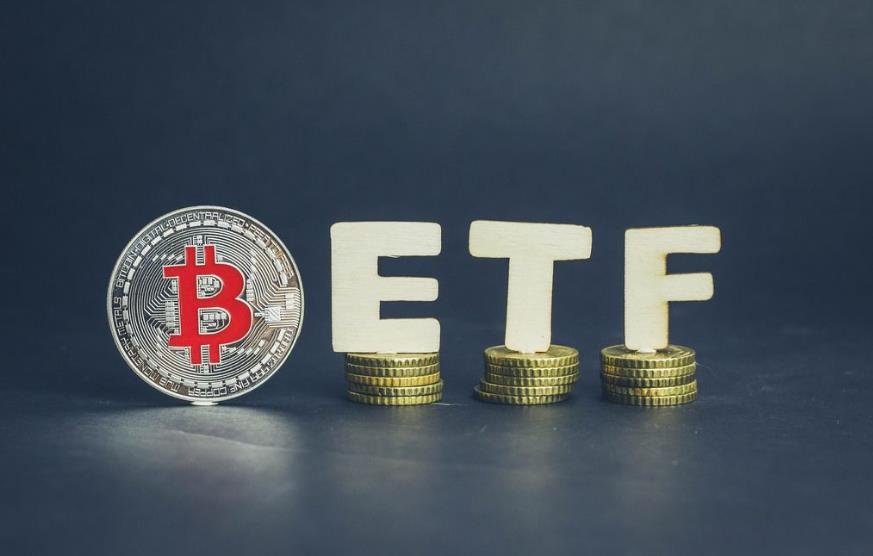The race for the first spot-bitcoin exchange traded fund (ETF) in the US has a new participant: RCC, a crypto asset management firm that targets environmental, social, and governance (ESG) focused investors. RCC filed an application with the Securities and Exchange Commission (SEC) on December 18, 2023, for a spot-bitcoin and carbon credits futures ETF.
RCC is a relatively small crypto asset manager that was founded in 2022 by a group of former Wall Street executives and environmental activists. RCC’s mission is to offer crypto investment products that align with ESG principles and contribute to the global fight against climate change.
RCC’s ETF proposal, named the RCC Bitcoin Carbon Neutral Trust, aims to track the price of bitcoin by holding the cryptocurrency in custody with Coinbase, one of the largest and most regulated crypto exchanges in the US. In addition, the trust will also invest in carbon credits futures contracts on the Intercontinental Exchange (ICE), which are instruments that represent the right to emit a certain amount of greenhouse gases.

By investing in carbon credits futures, RCC hopes to offset the carbon footprint of its bitcoin holdings, which are estimated to be around 92.3 terawatt-hours per year, according to a recent study. RCC claims that its ETF will be the first of its kind to offer a carbon-neutral exposure to bitcoin, and that it will appeal to ESG-conscious investors who want to participate in the crypto market without compromising their values.
How does RCC’s ETF differ from other applicants?
RCC is the 13th applicant for a spot-bitcoin ETF in the US, joining a crowded field of contenders that include well-known names such as BlackRock, ARK Invest, and Grayscale. However, RCC’s ETF stands out from the rest in two ways: its focus on ESG and its use of carbon credits futures.
Most of the other applicants for a spot-bitcoin ETF have focused on the potential benefits of bitcoin as an alternative asset class, such as its high returns, low correlation, and hedge against inflation. However, they have largely ignored or downplayed the environmental impact of bitcoin mining, which has been a major concern for regulators, investors, and the public.
RCC, on the other hand, has made ESG a core part of its ETF strategy, and has tried to address the environmental issue head-on. By investing in carbon credits futures, RCC aims to neutralize the carbon emissions of its bitcoin holdings, and to demonstrate its commitment to sustainability and social responsibility.
Moreover, RCC’s use of carbon credits futures is a novel and innovative approach that has not been seen in any other ETF proposal. Carbon credits futures are contracts that allow buyers and sellers to trade the right to emit a certain amount of greenhouse gases, such as carbon dioxide. By buying carbon credits futures, RCC can effectively reduce the amount of emissions that are allowed in the market, and thus contribute to the global effort to mitigate climate change.
What are the chances of RCC’s ETF getting approved?
The SEC has not approved any spot-bitcoin ETFs so far, despite receiving dozens of applications over the years. The main reasons for the SEC’s reluctance are the lack of regulation, transparency, and liquidity in the crypto market, as well as the high volatility, manipulation, and fraud risks associated with bitcoin.
However, some analysts and industry experts believe that the SEC may be more open to approving a spot-bitcoin ETF in the near future, as the crypto market has matured and evolved significantly in the past year. For instance, the SEC has recently approved several bitcoin futures ETFs, which are based on regulated derivatives contracts rather than the underlying cryptocurrency. The SEC has also issued several ETF rejection orders that provide more clarity and guidance on what the agency expects from a spot-bitcoin ETF applicant.
RCC’s decision to join the race for a spot-bitcoin ETF shows that the firm is confident and optimistic about its chances of getting approved. RCC believes that its unique and innovative ETF proposal will stand out from the crowd and address some of the SEC’s concerns. RCC also hopes that its ESG focus will attract more attention and support from the growing number of investors who care about the social and environmental impact of their investments.
However, RCC’s ETF proposal is not without challenges and uncertainties. RCC will have to prove that its carbon credits futures strategy is effective and reliable in offsetting the carbon footprint of its bitcoin holdings, and that it does not introduce additional risks or costs to the ETF. RCC will also have to compete with the other 12 applicants who have filed before it, and who may have more resources, experience, and reputation in the crypto and ETF markets.
RCC’s ETF application is currently under review by the SEC, which has 45 days to approve, reject, or extend the decision. The SEC can extend the decision up to 240 days, which means that RCC may have to wait until August 2024 for a final verdict. Until then, RCC will have to wait and see if its ESG twist can make a difference in the bitcoin ETF race.
